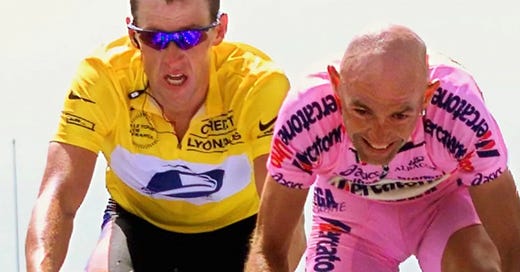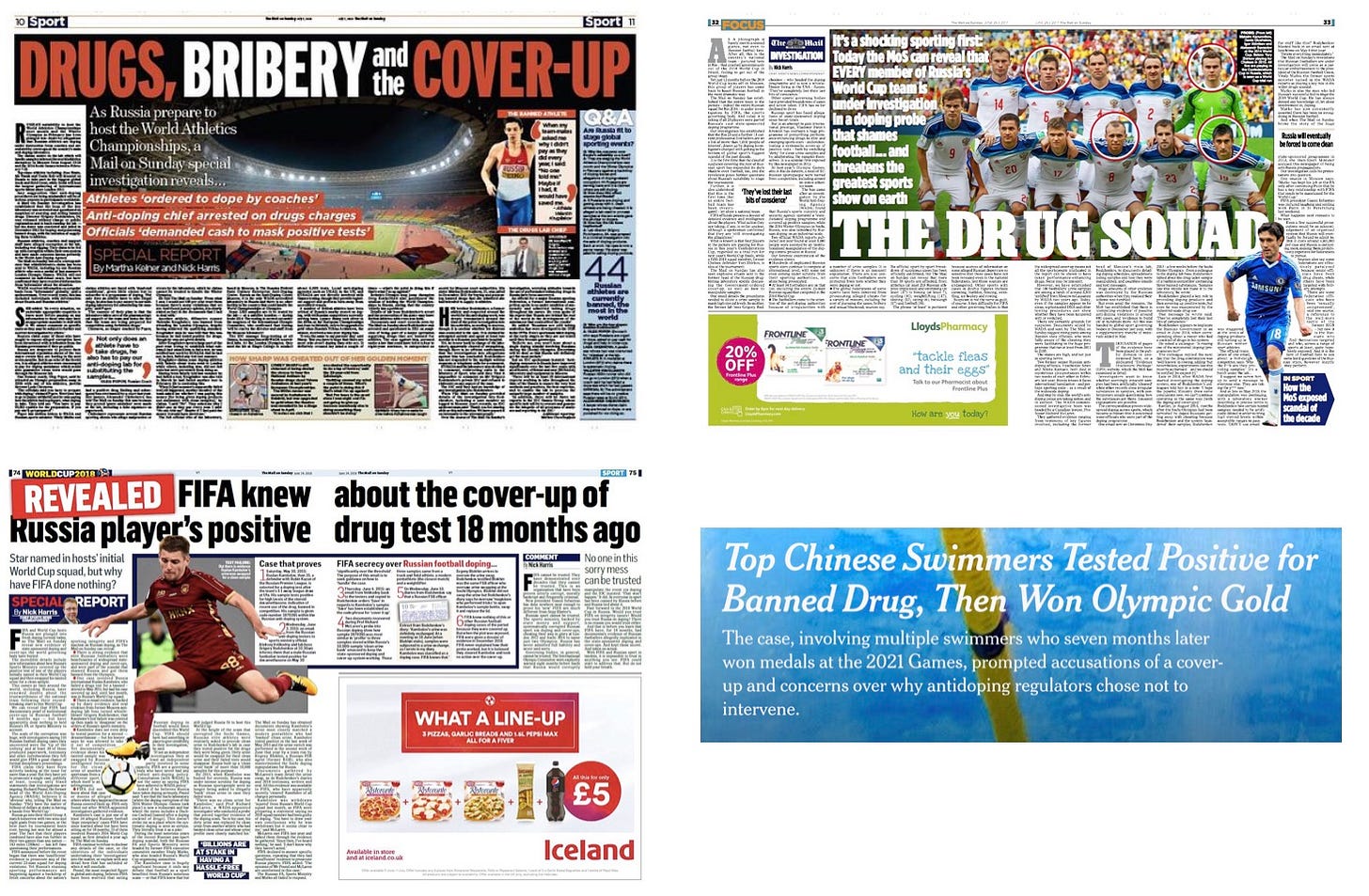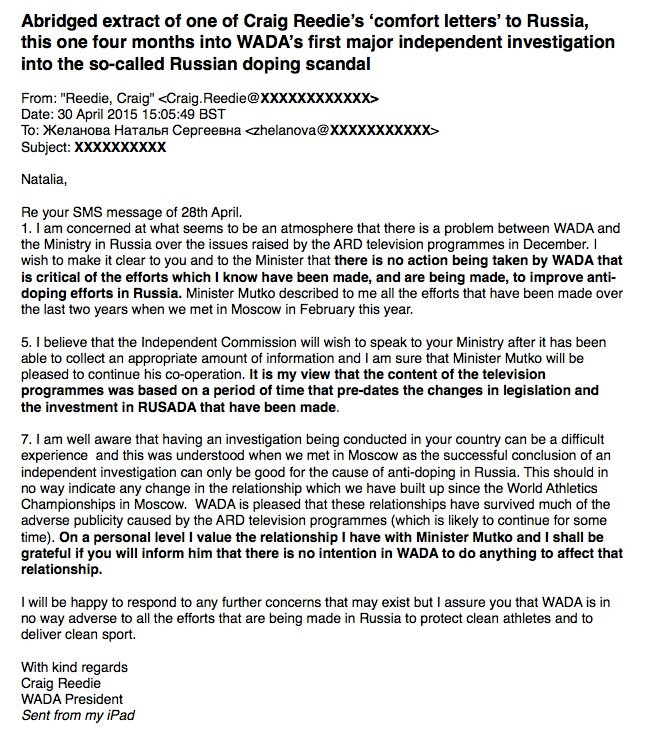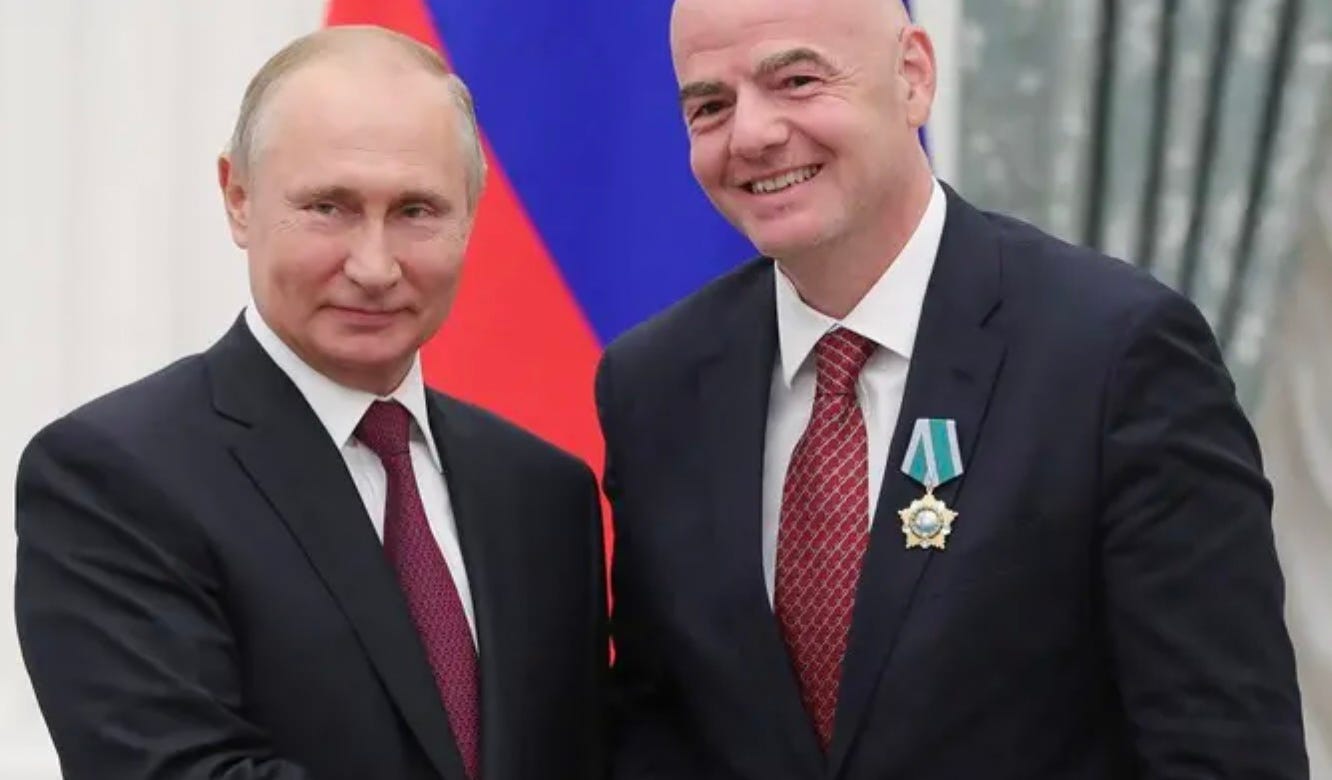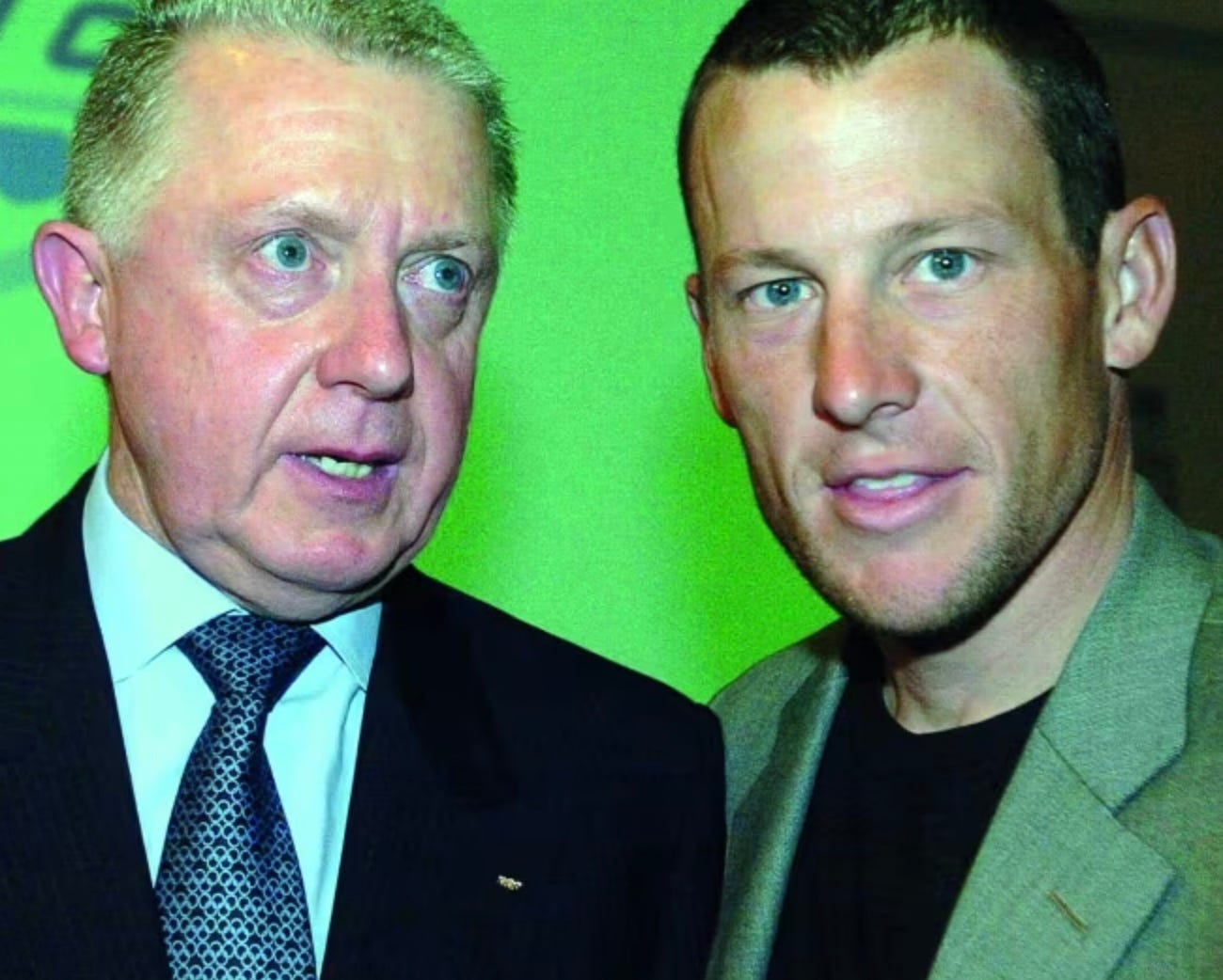Floyd Landis part 2: The data points that put Tadej Pogačar next to Marco Pantani
The man who won and lost the 2006 Tour de France says some governing bodies and anti-doping agencies have been part of sport's drugs problem, not part of the solution
Floyd Landis has a theory that many major sports, and international governing bodies, aren’t really interested in exposing doping. It’s bad for business.
The International Olympic Committee (IOC) is one focus of his ire, and the world anti-doping agency (WADA) is another. So too the world governing body of cycling, the UCI, at least from the time he was a rider, when the UCI was implicated in allowing Lance Armstrong to cheat with impunity.
Before we move on to the second part of my interview with Landis (part one is here), which deals in more depth with the theory, might Landis be right?
Answer: unequivocally yes, and here are a few examples to illustrate the point.
In July 2013, I told the IOC that there was a doping and cover-ups plot in Russia, being masterminded by WADA-accredited lab boss Grigory Rodchenkov. I told them Russia was planning to corrupt the Sochi Winter Olympics seven months later.
I told them a Russian official had told me that Russia would dope to the top of the Sochi medal table, saying: “Believe me, you won’t hear about a single doping scandal involving Russians during the [Sochi] Olympics. Everything will be done so that Russia will definitely get the most medals.”
I told the IOC that Rodchenkov and his sister were drug dealers and that Rodchenkov had been in a psychiatric clinic where he self-harmed before being sent back to work.
I told them all this because myself and colleague Martha Kelner had been investigating it for months. We reported it in July 2013 (top left in the photo montage below), and the story behind the story here.
Before we went to press with the Rodchenkov story, we told the IOC what we’d found. We thought they might act to prevent this scandal.
But they did absolutely nothing whatsoever with the information and allowed the Sochi Games to be corrupted. The IOC, the guardians of the Olympic ideal, were asleep at the wheel, and couldn’t be bothered to look into a state-sponsored doping plot.
I also contacted the IAAF - the world governing body of athletics, now World Athletics - about all this in 2013, because the 2013 athletics world championships were about to happen in Moscow, where the anti-doping tests would be overseen by the corrupt Rodchenkov. The IAAF ignored the warnings. Completely. They didn’t answer emails or return calls.
Russia won the most golds at that event, albeit a lot of them stripped for doping, much later.
As for WADA, the president of that organisation by 2015, Britain’s Craig Reedie, wrote a “comfort letter” to Russia (extract below) in the midst of the investigation into Russia’s state-sponsored doping programme, to say, in effect, he wouldn’t do anything to damage his friendship with Vitaly Mutko, the massively corrupt Russian sports minister and a key figure in the state doping.
He sent his message to Mutko in an email via Natalia Zhelanova, effectively Mutko’s deputy, and a woman with whom Reedie had become friendly.
WADA was supposed to be the global policeman of sport in all matters related to doping but Reedie just wanted to be chummy with everyone and was also asleep at the wheel.
What about FIFA, football’s famously ethical world governing body? I discovered that Russia’s 2014 World Cup squad were implicated in the state doping and cover-ups (top right, photo montage above).
FIFA also knew Russian footballers had been doping 18 months before the 2018 World Cup (bottom left, montage above) but did absolutely nothing because they didn’t want to upset 2018 World Cup hosts, Russia, and FIFA president Gianni Infantino’s friend, Vladimir Putin.
WADA, meanwhile, have more recently come in for criticism from many quarters, including from the US anti-doping agency, USADA, and various athletes, over the lack of transparency around 23 Chinese swimmers testing positive for banned drugs in 2021. (Original New York Times story, bottom right, photo montage above).
Reverting to cycling specifically, the UCI and its late president, Hein Verbruggen (below left), who was also an IOC member and later an honorary IOC member, were accused of allowing Armstrong (below right) to cheat with impunity.
The Cycling Independent Reform Commission (CIRC) was established in 2014 to investigate cycling’s doping problem from the 1990s onwards, and a damning report (PDF below) concluded the sport still had a drugs problem, which was “well known to the UCI leadership” during Armstrong’s pomp and Verbruggen’s presidency.
“It was clear to everyone that doping was endemic in cycling,” the report said. “Hein Verbruggen had acknowledged this, in principle … [and] after his election, the UCI employed a strategy of diverting public opinion from the fact that UCI was responsible for the doping issue in cycling.
“Doping was portrayed by the UCI leadership as the faulty (and surprising) behaviour of a few individuals, but not as endemic group behaviour or as a structural problem within its sport. Not only did UCI leadership publicly disregard the magnitude of the problem, but the policies put in place to combat doping were inadequate.”
In summary, the IOC, IAAF (now WA), FIFA, WADA and the UCI, among many others, have all been shown to be laissez-faire on doping at points in recent times. Scandals are bad for business.
So Landis does have a point. And in this second part of my interview with him, we’ll also hear why he believes …
The proposed ‘Enhanced Games’, where doping will be encouraged, will be a freak show for TV titillation.
WADA and national anti-doping associations need to be honest about doping prevalence and warn young people of the realities of drugs in sport.
What is behind record-breaking rides in recent tours, and why there are red flags you can look for in certain riders.
Why Mark Cavendish and Bradley Wiggins have been so relaxed about hanging out with Lance Armstrong.
There is an important role for medicinal cannabis in society.


